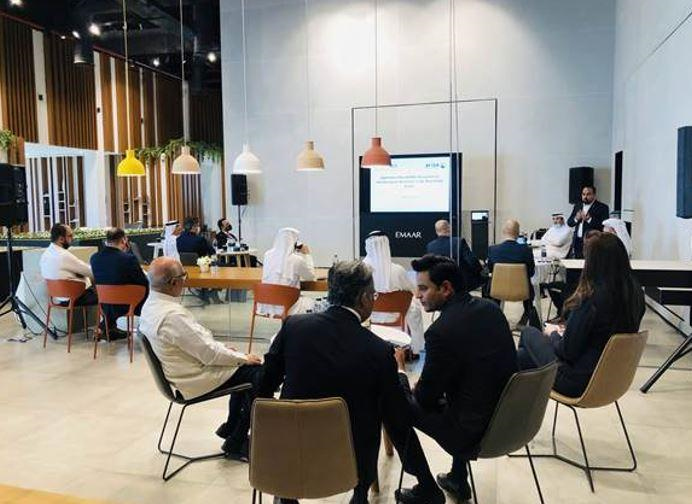
The UNDRR Regional Office for the Arab States (ROAS) and the Private Sector Alliance in the United Arab Emirates (ARISE UAE) brought together Real estate Developers and Regulators from the public sector to discuss the resilience of the Real Estate Sector. On March 24, 2021, an exploratory roundtable discussion on the infrastructure resilience in the real estate sector was conducted in Dubai with the presence of representatives from the UAE ARISE board members, real estate authorities such as the Real Estate Regulatory Agency in Dubai (RERA), the Dubai Development Authority, Dubai Municipality, Dubai Electricity and Water Authority (DEWA) and several prominent real estate developers including Emaar, Damac, Danube and Sun and Sand Developer. Representatives from the Coalition for Disaster Resilient Infrastructure (CDRI) also addressed the gathering and highlighted the dire need for infrastructure resilience and the significance of the same in the real estate industry.
The real estate developers and the regulators univocally underscored the need for the public and private sectors to join hands in enhancing resilience in the real estate sector through continuous information sharing and exchange. Participants discussed the need for quantifying the resilience of the real estate sector that goes beyond self-assessments; includes both buildings and associated systems; and agreed on the need for the development of infrastructure resilience indicators, standards, and certification for the real estate sector.
Mr. Mohamad Bin Hamad, Director of Owners Associations at RERA said: "In order to keep building codes and other regulatory measures updated and applied, it is important that real estate developers and regulators have regular information exchange and work together to enhance the regulatory frameworks".
Mr. Sujit Mohanty, the Chief of the UNDRR Regional Office for the Arab States reflected on the importance of infrastructure resilience in the wake of increasing economic losses due to natural and man-made hazards. He highlighted that trillions of dollars are being invested in infrastructure and real estate and the resilience of these investments will determine the success of the Sendai Framework as well as the future risk and economic losses from disasters. Mr. Mohanty highlighted the several approaches, methodologies, and tools available to assess the risk and resilience of the built environment and infrastructure resilience in the real estate sector.
The joint discussion between the government regulators and the private sector was concluded with an agreement to establish a platform/ committee under the UAE ARISE with the regulators, investors, real estate developers, and operators to continue the dialogue on real estate infrastructure resilience; pilot the development and application of a real estate infrastructure resilience standard and certification; and promote infrastructure resilience among other stakeholders.
Source: United Nations Office for Disaster Risk Reduction - Regional Office for Arab States






